MEET THE SPEAKERS
Presentations
New Presentations will be added each week. Click here to see more.
Live Panels
Moderated, speaker discussions, abstract & trainee award presentations on April 15 & 16.
Visit each speaker below for their presentation title & live discussion date/time.
Stephanie Amiel, BSc, MBBS, MD, FRCP
Recorded Presentation Title: Clinical Consequences of Hypoglycemia
Live Discussion: April 15, 1100-1140
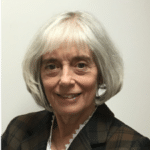 Prof Amiel is Professor of Diabetes Research Medicine at King’s College London and a senior diabetes consultant at King’s College London. She is a clinician and experimental medicine researcher in diabetes. Prof Amiel trained in medicine at Guy’s Hospital in London and was first house physician and later medical registrar to Prof Harry Keen. She then undertook her research fellowship with Profs Robert Sherwin and Bill Tamborlane, learning techniques for investigating human metabolism, studying changes in insulin sensitivity in childhood and adolescence and starting her life-long interest in the issues of hypoglycaemia in type 1 diabetes treatments. Returning to London, she started to work on subjective awareness and cognitive function in hypoglycaemia. Her first consultant post was at Guy’s, after which she took up the newly-created RD Lawrence Professor of Diabetic Medicine at King’s College London in 1995, the first university chair in Diabetic Medicine in the UK. At King’s collaborated with colleagues in neuroimaging, exploring brain responses to bypoglycaemia and also to food in insulin resistance and obesity. She led the development of the King’s insulin pump programme and with the King’s Liver Transplant Unit and Paediatric Hepatology, started a human islet isolation programme which formed the basis of the first reimbursed program of islet transplantation for hypoglycemia prevention. She worked with Prof Khalida Ismail to work on aspects of mental health in both type 1 and type 2 diabetes and she developed the UK’s DAFNE programme, a structured education programme for flexible insulin self-management for adults with type 1 diabetes, which reduced severe hypoglycemia, with colleagues in Sheffield, North Tyneside and Germany. Currently Prof Amiel is working on the use of cognitive therapies to improve impaired awareness of hypoglycaemia and on a project exploring the impact of Black African ethnicity on metabolic dysregulation in the development of type 2 diabetes. She is also part of HypoRESOLVE, an EU-IMI programme to define hypoglycaemia in terms of patient outcomes. Prof Amiel has contributed to national and international guidelines, chairing the 2015 revision of the UK’s NICE guidelines for the diagnosis and management of type 1 diabetes in adults and contributing to international position statements on the role of surgery in the management of type 2 diabetes, among others. She is an active member of the International Hypoglycaemia Study Group and continues to work with charities and other bodies to improve outcomes of type 1 diabetes, including in her current role as Chairman of Diabetes UK’s Strategic Research Advisory Group (SRAG).
Prof Amiel is Professor of Diabetes Research Medicine at King’s College London and a senior diabetes consultant at King’s College London. She is a clinician and experimental medicine researcher in diabetes. Prof Amiel trained in medicine at Guy’s Hospital in London and was first house physician and later medical registrar to Prof Harry Keen. She then undertook her research fellowship with Profs Robert Sherwin and Bill Tamborlane, learning techniques for investigating human metabolism, studying changes in insulin sensitivity in childhood and adolescence and starting her life-long interest in the issues of hypoglycaemia in type 1 diabetes treatments. Returning to London, she started to work on subjective awareness and cognitive function in hypoglycaemia. Her first consultant post was at Guy’s, after which she took up the newly-created RD Lawrence Professor of Diabetic Medicine at King’s College London in 1995, the first university chair in Diabetic Medicine in the UK. At King’s collaborated with colleagues in neuroimaging, exploring brain responses to bypoglycaemia and also to food in insulin resistance and obesity. She led the development of the King’s insulin pump programme and with the King’s Liver Transplant Unit and Paediatric Hepatology, started a human islet isolation programme which formed the basis of the first reimbursed program of islet transplantation for hypoglycemia prevention. She worked with Prof Khalida Ismail to work on aspects of mental health in both type 1 and type 2 diabetes and she developed the UK’s DAFNE programme, a structured education programme for flexible insulin self-management for adults with type 1 diabetes, which reduced severe hypoglycemia, with colleagues in Sheffield, North Tyneside and Germany. Currently Prof Amiel is working on the use of cognitive therapies to improve impaired awareness of hypoglycaemia and on a project exploring the impact of Black African ethnicity on metabolic dysregulation in the development of type 2 diabetes. She is also part of HypoRESOLVE, an EU-IMI programme to define hypoglycaemia in terms of patient outcomes. Prof Amiel has contributed to national and international guidelines, chairing the 2015 revision of the UK’s NICE guidelines for the diagnosis and management of type 1 diabetes in adults and contributing to international position statements on the role of surgery in the management of type 2 diabetes, among others. She is an active member of the International Hypoglycaemia Study Group and continues to work with charities and other bodies to improve outcomes of type 1 diabetes, including in her current role as Chairman of Diabetes UK’s Strategic Research Advisory Group (SRAG).
Graeme I. Bell, PhD
Recorded Presentation Title: The Genetics of Insulin – From Cloning to Human Disease
Live Discussion: April 16, 0830-0910
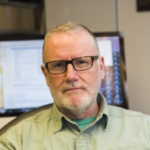 Graeme Bell is the Kovler Family Distinguished Service in Medicine, Human Genetics and Pediatrics at The University of Chicago. He is also Director of the University of Chicago Diabetes Research and Training Center. Dr. Bell has long-standing interest in the molecular biology and genetics of diabetes. He is a member of the National Academy of Medicine and the American Academy of Arts and Sciences.
Graeme Bell is the Kovler Family Distinguished Service in Medicine, Human Genetics and Pediatrics at The University of Chicago. He is also Director of the University of Chicago Diabetes Research and Training Center. Dr. Bell has long-standing interest in the molecular biology and genetics of diabetes. He is a member of the National Academy of Medicine and the American Academy of Arts and Sciences.
John Buse, MD, PhD
Recorded Presentation Title: Whither the Future of Insulin Management in Type 2 Diabetes?
Live Discussion: April 15, 0940-1020
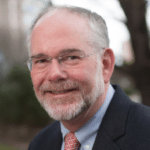 John Buse, MD, PhD is the Verne S. Caviness Distinguished Professor, Chief of the Division of Endocrinology, Director of the Diabetes Center, Director of the NC Translational and Clinical Sciences Institute and Executive Associate Dean for Clinical Research at the University of North Carolina (UNC) School of Medicine in Chapel Hill, North Carolina, USA. Dr. Buse completed service as President for Medicine & Science at the American Diabetes Association in 2008 and as Chair of the National Diabetes Education Program in 2014. He has received numerous awards and honors, including the 2010 Castle Connolly National Physician of the Year Award and the 2019 American Diabetes Association Outstanding Achievement in Clinical Diabetes Research Award. He has authored more than 400 publications.
John Buse, MD, PhD is the Verne S. Caviness Distinguished Professor, Chief of the Division of Endocrinology, Director of the Diabetes Center, Director of the NC Translational and Clinical Sciences Institute and Executive Associate Dean for Clinical Research at the University of North Carolina (UNC) School of Medicine in Chapel Hill, North Carolina, USA. Dr. Buse completed service as President for Medicine & Science at the American Diabetes Association in 2008 and as Chair of the National Diabetes Education Program in 2014. He has received numerous awards and honors, including the 2010 Castle Connolly National Physician of the Year Award and the 2019 American Diabetes Association Outstanding Achievement in Clinical Diabetes Research Award. He has authored more than 400 publications.
Allan Cherrington , PhD
Recorded Presentation Title: How does Insulin Act on the Liver?
Live Discussion: April 16, 0910-0950
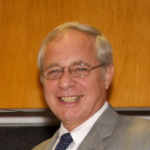 Alan D. Cherrington, PhD, Professor, Molecular Physiology and Biophysics
Alan D. Cherrington, PhD, Professor, Molecular Physiology and Biophysics
Jacquelyn A. Turner and Dr. Dorothy J. Turner Chair in Diabetes Research, Medicine
Diabetes, glycogenolysis, gluconeogenesis, physiology
Richard Coward, MD, PhD
Recorded Presentation Title: Insulin Action in the Kidney
Live Discussion: April 16, 0910-0950
 Richard Coward is the Professor of Renal medicine at the University of Bristol, and a Consultant Paediatric Nephrologist at Bristol Royal Hospital for Sick Children. Richard did his undergraduate training at Bristol University and then specialised in Paediatrics. His clinical training was undertaken in the South West of England, Great Ormond Street, London and the Starship hospital in Auckland, New Zealand. It was during this time that he decided to specialise in Paediatric Nephrology. In 2001 he was awarded a PhD fellowship funded by the Royal College of Paediatrics and Wellchild to study the molecular biology of the podocyte. In 2006 he secured an MRC Clinician Scientist Fellowship enabling him to work in the world leading glomerular laboratory in Toronto, Canada with Professor Susan Quaggin to extend his studies. His research interests have a focus on insulin signalling in the kidney and his group use a variety of in vitro and in vivo techniques to investigate this focus.
Richard Coward is the Professor of Renal medicine at the University of Bristol, and a Consultant Paediatric Nephrologist at Bristol Royal Hospital for Sick Children. Richard did his undergraduate training at Bristol University and then specialised in Paediatrics. His clinical training was undertaken in the South West of England, Great Ormond Street, London and the Starship hospital in Auckland, New Zealand. It was during this time that he decided to specialise in Paediatric Nephrology. In 2001 he was awarded a PhD fellowship funded by the Royal College of Paediatrics and Wellchild to study the molecular biology of the podocyte. In 2006 he secured an MRC Clinician Scientist Fellowship enabling him to work in the world leading glomerular laboratory in Toronto, Canada with Professor Susan Quaggin to extend his studies. His research interests have a focus on insulin signalling in the kidney and his group use a variety of in vitro and in vivo techniques to investigate this focus.
In 2013 he secured a prestigious MRC Senior Clinical Fellowship to develop his laboratory and research interests further, whilst continuing to have a clinical commitment in Paediatric Nephrology.
Jayne Danska, PhD
Recorded Presentation Title: Gut Microbes Regulate Gene – Environment Interactions in Type 1 Diabetes
Live Discussion: April 15, 0900-0940
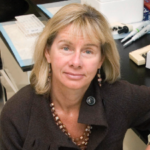 Dr. Danska was born and raised in New York City, and educated at Kenyon College, Cornell University Medical School, The Cold Spring Harbor Laboratory and Stanford University Medical School. She is a Senior Scientist at the Hospital for Sick Children and a Professor in the Faculty of Medicine at University of Toronto with appointments in the Departments of Immunology, and Medical Biophysics. She has made contributions to understanding immunological, genetic and environmental causes of Type 1 diabetes (T1D), molecular mechanisms of acute lymphoid leukemia (ALL), and innate immune surveillance of leukemia.
Dr. Danska was born and raised in New York City, and educated at Kenyon College, Cornell University Medical School, The Cold Spring Harbor Laboratory and Stanford University Medical School. She is a Senior Scientist at the Hospital for Sick Children and a Professor in the Faculty of Medicine at University of Toronto with appointments in the Departments of Immunology, and Medical Biophysics. She has made contributions to understanding immunological, genetic and environmental causes of Type 1 diabetes (T1D), molecular mechanisms of acute lymphoid leukemia (ALL), and innate immune surveillance of leukemia.
Sabrina Diano, PhD
Recorded Presentation Title: Mechanisms of Glucose Sensing
Live Discussion: April 15, 1100-1140
Dr. Sabrina Diano is the director of the Institute of Human Nutrition and the Robert R. Williams Professor of Nutrition in the Department of Molecular Pharmacology and Therapeutics, at Columbia University Irving Medical Center in New York City. She graduated with honors from the University of Naples “Federico II”, Naples, Italy. She conducted her post-doctoral studies at Yale University School of Medicine where she was a faculty between 2000-2020.
Her research focuses on Central Nervous System mechanisms regulating energy and glucose homeostasis. Her studies on the inter- and intra-cellular mechanisms that enable brain cells to sense and respond to changes in fuel availability add critical information to the current understanding of the central regulation of energy and glucose homeostasis. The results of her research have important implications for understanding the pathogenesis of metabolic syndrome, obesity and type 2 diabetes, disorders that are the leading cause of morbidity and mortality in the U.S., and the developed world in general, with the highest financial burden on the National economy.
Daniel Drucker, MD
Live Discussion: April 15, 1405-1440 [EST] New frontiers in Therapies Related to Glucagon-like Peptides
Dr. Daniel Drucker | Sinai Health/University of Toronto.
Dr. Dale Edgerton, MD, PhD
April 16th | 0910 – 0950 [EDT] Insulin Signaling in Health and Disease
 Dr. Edgerton received his undergraduate degree in Biology from Boise State University, and his PhD in Molecular Physiology and Biophysics from Vanderbilt University, working with Dr. Alan Cherrington. Following postgraduate training, he joined the Vanderbilt faculty in 2005, where he holds the position of Research Associate Professor in the department of Molecular Physiology and Biophysics. He is Managing Director of the VUMC Analytical Services Core.
Dr. Edgerton received his undergraduate degree in Biology from Boise State University, and his PhD in Molecular Physiology and Biophysics from Vanderbilt University, working with Dr. Alan Cherrington. Following postgraduate training, he joined the Vanderbilt faculty in 2005, where he holds the position of Research Associate Professor in the department of Molecular Physiology and Biophysics. He is Managing Director of the VUMC Analytical Services Core.
Over the past 25 years, Dr. Edgerton has studied the role of glucoregulatory hormones in controlling fasting and postprandial glucose metabolism. In particular, his research has focused on the physiologic roles of insulin and glucagon in directing gluconeogenesis and glycogenolysis, key components of liver glucose production. He has shown that although insulin’s direct effects on the liver dominate the suppression of hepatic glucose production and uptake, insulin can also regulate these processes through indirect effects on other tissues, including the inhibition of lipolysis by fat, suppression of pancreatic glucagon secretion, and through effects on the central nervous system. His study of brain insulin action has shown that while this mechanism regulates hepatic glucoregulatory gene expression, it is not part of the acute postprandial response to insulin. Dr. Edgerton’s research has investigated the therapeutic efficacy of DPP-IV inhibitor and GLP-1 receptor agonist strategies for controlling liver glucose metabolism. After identifying the liver as a major site of extra-adrenal cortisol production via intrahepatic 11beta-hydroxysteroid dehydrogenase-2 activity, he demonstrated that blocking this pathway is a viable means of reducing glucose production. His research has shown that dietary fat and fructose cause a major impairment in hepatic glucose effectiveness and he is currently exploring innovative techniques for correcting the associated defect in hepatic glucokinase.
Decio L. Eizirik, MD, PhD
Recorded Presentation Title: Islet Inflammation and Type 1 Diabetes – New Perspectives
Live Discussion: April 16, 0900-0940
 Decio L. Eizirik, M.D., Ph.D., is Professor at the ULB Center for Diabetes Research (http://lmedex.ulb.ac.be/index.php), Medical Faculty, Universite Libre de Bruxells (ULB), Belgium; Scientific Director of the Diabetes Center at the Indiana Biosciences Research Institute (IBRI; https://www.indianabiosciences.org/) and Visiting Professor at the Danish Diabetes Academy, Copenhagen, Denmark. He has published >370 full papers and reviews in peer-reviewed international journals and has received several national and international prizes, including the Juvenile Diabetes Research Foundation (JDRF) Diabetes Care Research Award, 1998, the “2012 Albert Renold Prize Lecture for Outstanding Achievements in Research on the Islets of Langernhans” awarded by the European Association for the Study of Diabetes (EASD), Berlin, Germany, 10.2012 and the “2013 Rumbough Award for outstanding achievements in type 1 diabetes research”, awarded by the JDRF, New York, 12.2013. He is listed by the ISI Essential Science Indicators among the 1% most cited scientists in Clinical Medicine and Biology & Biochemistry, with an h-index of 83. Dr Eizirik has served as Honorary (Scientific) Secretary of the EASD and as Deputy Editor of Diabetologia. His research focuses on the molecular mechanisms regulating insulitis and beta cell apoptosis in type 1 diabetes and on the search for novel approaches to prevent the progressive loss of beta cell mass in diabetes.
Decio L. Eizirik, M.D., Ph.D., is Professor at the ULB Center for Diabetes Research (http://lmedex.ulb.ac.be/index.php), Medical Faculty, Universite Libre de Bruxells (ULB), Belgium; Scientific Director of the Diabetes Center at the Indiana Biosciences Research Institute (IBRI; https://www.indianabiosciences.org/) and Visiting Professor at the Danish Diabetes Academy, Copenhagen, Denmark. He has published >370 full papers and reviews in peer-reviewed international journals and has received several national and international prizes, including the Juvenile Diabetes Research Foundation (JDRF) Diabetes Care Research Award, 1998, the “2012 Albert Renold Prize Lecture for Outstanding Achievements in Research on the Islets of Langernhans” awarded by the European Association for the Study of Diabetes (EASD), Berlin, Germany, 10.2012 and the “2013 Rumbough Award for outstanding achievements in type 1 diabetes research”, awarded by the JDRF, New York, 12.2013. He is listed by the ISI Essential Science Indicators among the 1% most cited scientists in Clinical Medicine and Biology & Biochemistry, with an h-index of 83. Dr Eizirik has served as Honorary (Scientific) Secretary of the EASD and as Deputy Editor of Diabetologia. His research focuses on the molecular mechanisms regulating insulitis and beta cell apoptosis in type 1 diabetes and on the search for novel approaches to prevent the progressive loss of beta cell mass in diabetes.
Denice Feig, MD
Recorded Presentation Title: Evolving Technologies for the Management of Diabetes and Pregnancy
Live Discussion: April 15, 1020-1100
 Dr Denice Feig is a Professor of Medicine in the Division of Endocrinology and Metabolism at the University of Toronto, and holds a cross-appointment in both the Department of Obstetrics and Gynaecology and the Department of Health Policy, Management and Evaluation. She is a Senior Clinician Scientist at the Lunenfeld-Tananbaum Research Institute, and an Adjunct Scientist at the Institute for Clinical and Evaluative Sciences. She is Head of the Diabetes and Endocrine in Pregnancy Program at Mount Sinai Hospital, Chair of the University of Toronto Diabetes in Pregnancy Study Group and Past Chair of the Diabetes in Pregnancy Interest Group for the American Diabetes Association. Her research focus is in the area of diabetes in pregnancy and she was awarded the Canadian Diabetes in Pregnancy Study Group Award for Excellence.
Dr Denice Feig is a Professor of Medicine in the Division of Endocrinology and Metabolism at the University of Toronto, and holds a cross-appointment in both the Department of Obstetrics and Gynaecology and the Department of Health Policy, Management and Evaluation. She is a Senior Clinician Scientist at the Lunenfeld-Tananbaum Research Institute, and an Adjunct Scientist at the Institute for Clinical and Evaluative Sciences. She is Head of the Diabetes and Endocrine in Pregnancy Program at Mount Sinai Hospital, Chair of the University of Toronto Diabetes in Pregnancy Study Group and Past Chair of the Diabetes in Pregnancy Interest Group for the American Diabetes Association. Her research focus is in the area of diabetes in pregnancy and she was awarded the Canadian Diabetes in Pregnancy Study Group Award for Excellence.
Ruth E. Gimeno, PhD
Recorded Presentation Title: The Eli Lilly Insulin Story
Live Discussion: April 15, 0800-0900
 Dr. Gimeno leads research efforts in diabetes and complications for Eli Lilly and Company with responsibility for projects from target identification through phase 2 clinical development. Lilly’s research pipeline in diabetes includes insulins and connected care, incretins, novel approaches aimed at breakthrough weight loss and durable glucose control, as well as novel approaches to major complications on diabetes, with emphasis on atherosclerotic cardiovascular disease, heart failure, chronic kidney disease and NASH.
Dr. Gimeno leads research efforts in diabetes and complications for Eli Lilly and Company with responsibility for projects from target identification through phase 2 clinical development. Lilly’s research pipeline in diabetes includes insulins and connected care, incretins, novel approaches aimed at breakthrough weight loss and durable glucose control, as well as novel approaches to major complications on diabetes, with emphasis on atherosclerotic cardiovascular disease, heart failure, chronic kidney disease and NASH.
Dr. Gimeno received her undergraduate training in medicine at the Julius-Maximilians-University in Würzburg, Germany, and obtained a Ph.D. in biology from the Massachusetts Institute of Technology in Cambridge, USA. After completing her Ph.D., Dr. Gimeno joined Millennium Pharmaceuticals to work on novel targets for obesity and diabetes. In 2003, Dr. Gimeno moved to Wyeth (later Pfizer) in Cambridge, USA, where she continued her work in diabetes, and also led projects in obesity and diabetic nephropathy. Dr Gimeno joined Lilly in 2011 as Chief Scientific Officer for diabetes research and assumed her current position in December 2016.
Dr. Gimeno has led numerous drug discovery projects and has been involved in the clinical development of several molecules, including ultrarapid insulin lispro and a novel dual GIP and GLP-1 receptor agonist, tirzepatide. Dr. Gimeno’s scientific contributions include the identification and functional characterization of novel drug targets as well as several candidate therapeutics, resulting in more than 50 publications.
Carla J. Greenbaum, MD
Recorded Presentation Title: Preventing Diabetes in Children
Live Discussion: April 16, 1030-1110
 Dr. Carla Greenbaum is Director of the Diabetes Program and Center for Interventional Immunology at Benaroya Research Institute in Seattle, Washington USA. She is a clinical investigator with a focus on prediction and prevention of type 1 diabetes. Dr. Greenbaum is Chair of Type 1 Diabetes TrialNet, an NIH funded multicenter, international clinical trial network aiming to alter the disease course of type 1 diabetes before or after diagnosis. She has led or participated in multiple clinical trials including both academic and industry research efforts and has extensive experience in investigator initiated studies. Dr. Greenbaum facilitates translational research and has a particular interest in biomarker discovery and validation in type 1 diabetes. She received her medical training at Brown University and endocrinology fellowship at University of Washington.
Dr. Carla Greenbaum is Director of the Diabetes Program and Center for Interventional Immunology at Benaroya Research Institute in Seattle, Washington USA. She is a clinical investigator with a focus on prediction and prevention of type 1 diabetes. Dr. Greenbaum is Chair of Type 1 Diabetes TrialNet, an NIH funded multicenter, international clinical trial network aiming to alter the disease course of type 1 diabetes before or after diagnosis. She has led or participated in multiple clinical trials including both academic and industry research efforts and has extensive experience in investigator initiated studies. Dr. Greenbaum facilitates translational research and has a particular interest in biomarker discovery and validation in type 1 diabetes. She received her medical training at Brown University and endocrinology fellowship at University of Washington.
Stewart B. Harris, CM, MD, MPH, FCFP, FACPM
Recorded Presentation Title: The Challenge of Insulin in Primary Care
Live Discussion: April 15, 1020-1100
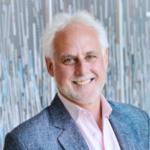 Dr. Stewart Harris is a Professor in the Department of Family Medicine, with cross appointments in the Departments of Epidemiology & Biostatistics and Division of Endocrinology & Metabolism, of the Schulich School of Medicine & Dentistry at Western University. Dr. Harris is also a Research Scientist at the Lawson Health Research Institute. He was reappointed to a third term in 2019 to the position of the Diabetes Canada Chair in Diabetes Management https://www.uwo.ca/diabetesalliance/ and he holds the Ian McWinney Chair of Family Medicine Studies at Western University. Dr. Harris is also the lead physician and Medical Director at the Primary Care Diabetes Support Program (PCDSP) at St. Joseph’s Health Care, London, ON – an integrated team-based diabetes clinic for disenfranchised and marginalized populations, which he founded in 2007. Dr. Harris’s research program focuses on three priority areas: (1) diabetes research with Indigenous Peoples; (2) hypoglycemia research; and (3) clinical trials.
Dr. Stewart Harris is a Professor in the Department of Family Medicine, with cross appointments in the Departments of Epidemiology & Biostatistics and Division of Endocrinology & Metabolism, of the Schulich School of Medicine & Dentistry at Western University. Dr. Harris is also a Research Scientist at the Lawson Health Research Institute. He was reappointed to a third term in 2019 to the position of the Diabetes Canada Chair in Diabetes Management https://www.uwo.ca/diabetesalliance/ and he holds the Ian McWinney Chair of Family Medicine Studies at Western University. Dr. Harris is also the lead physician and Medical Director at the Primary Care Diabetes Support Program (PCDSP) at St. Joseph’s Health Care, London, ON – an integrated team-based diabetes clinic for disenfranchised and marginalized populations, which he founded in 2007. Dr. Harris’s research program focuses on three priority areas: (1) diabetes research with Indigenous Peoples; (2) hypoglycemia research; and (3) clinical trials.
Dr. Harris has continued to offer diabetes research to undergraduates, medical and graduate students and he continues to advise a PhD candidate in Epidemiology & Biostatistics. Dr. Harris has published over 270 articles in peer-reviewed journals and participated extensively in clinical practice guideline development, including serving as chair of the Canadian Diabetes Association clinical practice guidelines committee. He is the recipient of the Ontario Ministry of Heath Career Scientist award, the Dr. Gerald S. Wong Service Award of the Canadian Diabetes Association, the Hellmuth Prize for Achievement in Research at Western University, and is a Fellow in the Canadian Academy of Health Sciences. On July 1, 2015, Dr. Harris was appointed to the Order of Canada for his contributions to the development of strategies to manage and reduce diabetes in Aboriginal communities and other vulnerable populations.
Kevan Herold, MD
Recorded Presentation Title: Therapeutic Approaches to Circumventing Autoimmunity
Live Discussion: April 16, 1030-1110 [EST]
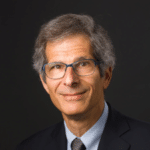 Kevan Herold, MD is Professor of Immunobiology and Internal Medicine at the Yale School of Medicine. He was trained as an Endocrinologist and as an Immunologist at the University of Chicago. His career has been focused on studies of the pathogenesis and treatment of immune diseases. His work began in murine models and has involved studies of human samples from clinical trials. He has been the PI of 5 multicenter clinical trials of teplizumab for treatment and prevention of Type 1 diabetes and has also led other single and multicenter clinical trials. His work has spanned a number of aspects of the pathogenesis of autoimmune diabetes including the immune mechanisms and the effects of autoimmunity on beta cells, with studies in preclinical and with clinical samples. A large portion of his studies involve understanding how immune therapies modify pathogenic immune responses. His lab identified a subpopulation of beta cells that appear to resist immune attack. He developed an assay to measure β cell death in vivo and described changes in beta cells that occur in response to immunologic stressors which, he postulated may enable their survival. His laboratory has a long standing interest in developing tools to analyze autoantigen specific T cells in patients with Type 1 diabetes and has used Class I MHC tetramers to analyze these cells in clinical trials and more recently developed T cell libraries for this purpose. His group was the first to identify autoimmune diabetes induced with checkpoint inhibitors which has provided insights into the mechanisms of Type 1 diabetes. He is a member of the Immune Tolerance Network Steering committee and the PI of the Yale Trial Net Center. He serves as Deputy Director for Translational Medicine in the Yale CTSA, and the Director of the Autoimmunity program in the Human Translational Immunology section of the Department of Immunobiology.
Kevan Herold, MD is Professor of Immunobiology and Internal Medicine at the Yale School of Medicine. He was trained as an Endocrinologist and as an Immunologist at the University of Chicago. His career has been focused on studies of the pathogenesis and treatment of immune diseases. His work began in murine models and has involved studies of human samples from clinical trials. He has been the PI of 5 multicenter clinical trials of teplizumab for treatment and prevention of Type 1 diabetes and has also led other single and multicenter clinical trials. His work has spanned a number of aspects of the pathogenesis of autoimmune diabetes including the immune mechanisms and the effects of autoimmunity on beta cells, with studies in preclinical and with clinical samples. A large portion of his studies involve understanding how immune therapies modify pathogenic immune responses. His lab identified a subpopulation of beta cells that appear to resist immune attack. He developed an assay to measure β cell death in vivo and described changes in beta cells that occur in response to immunologic stressors which, he postulated may enable their survival. His laboratory has a long standing interest in developing tools to analyze autoantigen specific T cells in patients with Type 1 diabetes and has used Class I MHC tetramers to analyze these cells in clinical trials and more recently developed T cell libraries for this purpose. His group was the first to identify autoimmune diabetes induced with checkpoint inhibitors which has provided insights into the mechanisms of Type 1 diabetes. He is a member of the Immune Tolerance Network Steering committee and the PI of the Yale Trial Net Center. He serves as Deputy Director for Translational Medicine in the Yale CTSA, and the Director of the Autoimmunity program in the Human Translational Immunology section of the Department of Immunobiology.
Irl B. Hirsch, MD, MACP
Recorded Presentation Title: Barriers to Insulin Use in Adults
Live Discussion: April 15, 0940-1020
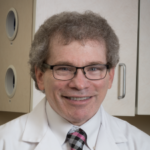 Dr. Hirsch received his medical degree from the University of Missouri School of Medicine in 1984. He completed residency training in internal medicine at the University of Miami, in Miami, Florida and Mount Sinai Hospital in Miami Beach, Florida and a research fellowship at Washington University School of Medicine in St. Louis.
Dr. Hirsch received his medical degree from the University of Missouri School of Medicine in 1984. He completed residency training in internal medicine at the University of Miami, in Miami, Florida and Mount Sinai Hospital in Miami Beach, Florida and a research fellowship at Washington University School of Medicine in St. Louis.
Dr. Hirsch has authored more than 250 research papers. He also has written more than 60 editorials, three commentaries for The Journal of the American Medical Association, numerous book chapters and six books for patients and physicians. He is well known for his yearly “rants” in “Diabetes Technology and Therapeutics”.
From both a research and teaching point of view, Dr. Hirsch has spent his career studying best strategies for the use of insulin therapy and better technology in both type 1 and type 2 diabetes. Past major clinical research trials include DCCT, ACCORD, STAR-1, the JDRF Sensor Trial, SEARCH, ORIGIN, and ADAG, a variety of important observations with the T1D Exchange and many more involved with insulin therapy, including the impact of glucose control in bone marrow transplant patients. He has also been outspoken about insulin pricing in the US. Currently he is working on identifying atypical forms of diabetes, various systems for automated insulin therapy, skin pathology in insulin pump users, and studies to better understand the physiology of ketogenesis in type 1 diabetes.
Dr. Hirsch has been honored at every level of his career. In 2005, he received the American Association of Clinical Endocrinologists’ Distinguished Endocrinologist Award, and in 2013, he received the American Diabetes Association’s Josiah K. Lilly Sr. Distinguished Service Award. In April 2015 he was elected to a Mastership by the American College of Physicians and in 2018 he was honored by the Endocrine Society with the Laureate Award for Outstanding Public Service.
Dr. Hirsch is the former chair of the Professional Practice Committee for the American Diabetes Association and has served as editor-in-chief of two ADA journals, “Clinical Diabetes” and “DOC News”. He is an Associate Editor of “Diabetes Technology and Therapeutics” and has been on the editorial board of “Diabetes Care”. He has also served as a member of the American Board of Internal Medicine.
Jens Holst, MD
Live Discussion: April 15, 1405-1440 [EST] New frontiers in Therapies Related to Glucagon-like Peptides
Dr. Jens Holst | University of Copenhagen.
Roman Hovorka, PhD
Recorded Presentation Title: New Closed Loop Insulin Systems
Live Discussion: April 16, 0950-1030
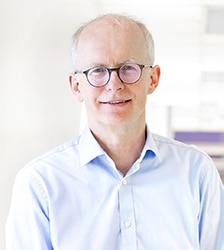 Roman Hovorka PhD FMedSci is Professor of Metabolic Technology at the Institute of Metabolic Science and Department of Paediatrics, University of Cambridge, UK. Roman’s main interest is diabetes technology including the “artificial pancreas”, a device that delivers insulin in glucose responsive fashion using continuous glucose monitor, insulin pump, and control algorithm.
Roman Hovorka PhD FMedSci is Professor of Metabolic Technology at the Institute of Metabolic Science and Department of Paediatrics, University of Cambridge, UK. Roman’s main interest is diabetes technology including the “artificial pancreas”, a device that delivers insulin in glucose responsive fashion using continuous glucose monitor, insulin pump, and control algorithm.
C. Ronald Kahn
Recorded Presentation Title: Defining the Underlying Defect in Insulin Action in Diabetes
Live Discussion: April 16, 0830-0910
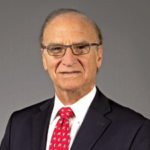 C. Ronald Kahn is a world recognized expert in diabetes and obesity research, as well as a preeminent investigator in the area of insulin signal transduction and mechanisms of altered signaling in diabetes and metabolic disease. Dr. Kahn is Head of the Section on Integrative Physiology and Metabolism at Joslin Diabetes Center and the Mary K. Iacocca Professor of Medicine at Harvard Medical School. Dr. Kahn served as Research Director of Joslin Diabetes Center from 1981 to 2000 and served as President of Joslin from 2000 to 2007. He is currently the Center’s Chief Academic Officer.
C. Ronald Kahn is a world recognized expert in diabetes and obesity research, as well as a preeminent investigator in the area of insulin signal transduction and mechanisms of altered signaling in diabetes and metabolic disease. Dr. Kahn is Head of the Section on Integrative Physiology and Metabolism at Joslin Diabetes Center and the Mary K. Iacocca Professor of Medicine at Harvard Medical School. Dr. Kahn served as Research Director of Joslin Diabetes Center from 1981 to 2000 and served as President of Joslin from 2000 to 2007. He is currently the Center’s Chief Academic Officer.
Dr. Kahn has received more than 70 awards and honors, including the Wolf Prize in Medicine, Kober Medal of the AAP and the highest honors of the American Diabetes Association, U.S. and British Endocrine Societies, Juvenile Diabetes Research Foundation, European Association for the Study of Diabetes and the American Association of Clinical Endocrinologists. He has been elected to the National Academy of Science and National Academy of Medicine. He has authored more than 700 original publications and 200 reviews and chapters.
Dr. Kahn holds undergraduate and medical degrees from the University of Louisville. He also holds an honorary Master of Science from Harvard University, honorary Doctorates from the University of Paris, University of Louisville, University of Geneva, Washington University in St. Louis, Louisiana State University and the University of Copenhagen and is an honorary Professor and Director of the Diabetes Center at Peking University School of Medicine.
Tim Kieffer, MD
Live Discussion: April 15, 1505-1530 [EST]
The Stem Cell Revolution in Islet
Replacement Therapy
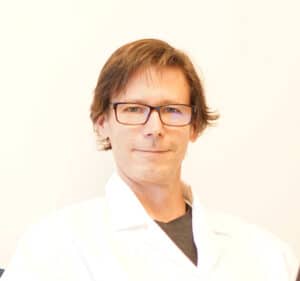
Dr. Kieffer’s laboratory is focused on the development of novel gene and cell therapy approaches to treat diabetes. He has co-authored >175 peer reviewed publications on these topics in addition to several book chapters and patents and given >100 invited presentations. He has mentored >40 graduate students and postdoctoral fellows in addition to numerous undergraduates and is an active teacher. He has received scholarships from the Canadian Diabetes Association (CDA), the Alberta Heritage Foundation for Medical Research, the Michael Smith Foundation for Health Research, and JDRF and his research has been supported by these agencies, in addition to the Canadian Institutes
of Health Research (CIHR), Canadian Foundation for Innovation and the Stem Cell Network.
Dr. Kieffer has also been a reviewer and member of grants review committees for these agencies, including serving as Scientific Officer and Chair on CIHR and CDA committees. In 2010 he received the CDA Young Scientist Award and in 2018 was elected
as a Fellow of the Canadian Academy of Health Sciences. In 2016/17 he spent 1 year on sabbatical at The Center for iPS Cell Research and Application (CiRA), Kyoto University.
George L. King, MD
Recorded Presentation Title: Insulin Action in Blood Vessels
Live Discussion: April 16, 0910-0950
 George L. King, M.D., is the Senior Vice President, Chief Scientific Officer at Joslin Diabetes Center, as well as a Professor of Medicine and Ophthalmology at Harvard Medical School. He received his medical degree from Duke University School of Medicine and residency at the University of Washington Affiliated Hospitals in Seattle and the National Institutes of Health. Dr. King has published over 300 papers and multiple books and patents. Dr. King’s work focuses on finding the causes of diabetic complications, founder of The Medalist Study to discover new treatments for diabetic complications, and understanding the reasons for the high rate of diabetes in Asian Americans. His laboratory discovered that VEGF, protein most responsible for causing the severe form of diabetic eye disease. Dr. King has received numerous awards, Cogan Award from the Association for Research in Vision and Ophthalmology, Alcon Award for Vision Research, Harold Amos Diversity Award from Harvard Medical School, the Chinese American Medical Society Scientific Award, the 2015 Edwin Bierman Award from the American Diabetes Association, with several others, the Champalimaud Award for Vision, the largest award in the vision research field and Mary Tyler Moore and Robert Levine Award from the JDRF 2016. Dr. King is a member of The Association of American Physicians and a fellow of The American Association for the Advancement of Science.
George L. King, M.D., is the Senior Vice President, Chief Scientific Officer at Joslin Diabetes Center, as well as a Professor of Medicine and Ophthalmology at Harvard Medical School. He received his medical degree from Duke University School of Medicine and residency at the University of Washington Affiliated Hospitals in Seattle and the National Institutes of Health. Dr. King has published over 300 papers and multiple books and patents. Dr. King’s work focuses on finding the causes of diabetic complications, founder of The Medalist Study to discover new treatments for diabetic complications, and understanding the reasons for the high rate of diabetes in Asian Americans. His laboratory discovered that VEGF, protein most responsible for causing the severe form of diabetic eye disease. Dr. King has received numerous awards, Cogan Award from the Association for Research in Vision and Ophthalmology, Alcon Award for Vision Research, Harold Amos Diversity Award from Harvard Medical School, the Chinese American Medical Society Scientific Award, the 2015 Edwin Bierman Award from the American Diabetes Association, with several others, the Champalimaud Award for Vision, the largest award in the vision research field and Mary Tyler Moore and Robert Levine Award from the JDRF 2016. Dr. King is a member of The Association of American Physicians and a fellow of The American Association for the Advancement of Science.
Amira Klip, PhD
Recorded Presentation Title: Insulin Action in Muscle and Fat Promoting Glucose Uptake
Live Discussion: April 16, 0910-0950
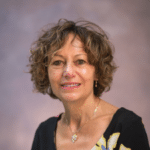 Amira Klip is a Senior Scientist in the Cell Biology Program of Toronto’s Hospital for Sick Children and a Professor of Paediatrics, Biochemistry, and Physiology at The University of Toronto. She studies insulin action at the cellular and molecular levels and was first to reveal the insulin- and exercise-dependent translocation of glucose transporters from inside the muscle to its surface. Her work focuses on mechanisms that confer insulin resistance to muscle including engagement of the innate immune system, and more recently on insulin and glucose interactions with microvascular cells.
Amira Klip is a Senior Scientist in the Cell Biology Program of Toronto’s Hospital for Sick Children and a Professor of Paediatrics, Biochemistry, and Physiology at The University of Toronto. She studies insulin action at the cellular and molecular levels and was first to reveal the insulin- and exercise-dependent translocation of glucose transporters from inside the muscle to its surface. Her work focuses on mechanisms that confer insulin resistance to muscle including engagement of the innate immune system, and more recently on insulin and glucose interactions with microvascular cells.
Klip received her PhD in Biochemistry in Mexico City, did postdoctoral training in at the University of Toronto and the ETH in Zurich, and joined Toronto’s SickKids in 1980, where she was an Associate Chief of Research for 18 years and founding director of the Research Training Centre. A former Editor-in-Chief of the American Journal of Physiology – Endocrinology of Metabolism she also held the Canada Research Chair in Cell Biology of Insulin Action for 14 years. Klip is an elected fellow of the Royal Society of Canada and of the Canadian Academy of Health Sciences, has received distinguished international awards and led advisory panels at the Karolinska Institute in Stockholm, the Leloir Foundation in Buenos Aires and the University of British Columbia. Klip received top awards from the MRC/CIHR (Fellowship, Scholarship, Scientist and Distinguished Scientist) and an Honorary Doctorate from the University of Copenhagen. She has authored over 300 original peer-reviewed papers and invited reviews, directed the research of over 50 graduate students and 40 postdoctoral fellows, and is currently the recipient of a CIHR Foundation Grant.
Peter Kurtzhals, PhD
Recorded Presentation Title: The Novo Nordisk Insulin Story
Live Discussion: April 15, 0800-0900
 Peter Kurtzhals is Chief Scientific Advisor for Novo Nordisk R&D. He holds a PhD degree from The Danish University of Pharmaceutical Sciences. He joined Novo Nordisk in 1990. He has held positions as Principal Scientist in the Insulin Research group at Novo Nordisk, as a Visiting Scientist at the Joslin Diabetes Center in Boston, and as Head of Diabetes Biology at Novo Nordisk. He was appointed Vice President and Head of Discovery Biology in 2000 and Senior Vice President in 2001. As Senior Vice President, Peter Kurtzhals has overseen Novo Nordisk Discovery Research 2001-2005, the Diabetes Research Unit 2005-2014, Device R&D 2005-2008 and Novo Nordisk Global Research 2015-2018. As SVP and head of Novo Nordisk Diabetes Research Unit in the period 2005-2014, Peter Kurtzhals progressed 49 candidate drugs to clinical development stage. In April 2018 Peter Kurtzhals was appointed Chief Scientific Advisor for Novo Nordisk R&D. Peter Kurtzhals was appointed adjunct professor at the University of Copenhagen, Faculty of Health and Medical Sciences in 2012.
Peter Kurtzhals is Chief Scientific Advisor for Novo Nordisk R&D. He holds a PhD degree from The Danish University of Pharmaceutical Sciences. He joined Novo Nordisk in 1990. He has held positions as Principal Scientist in the Insulin Research group at Novo Nordisk, as a Visiting Scientist at the Joslin Diabetes Center in Boston, and as Head of Diabetes Biology at Novo Nordisk. He was appointed Vice President and Head of Discovery Biology in 2000 and Senior Vice President in 2001. As Senior Vice President, Peter Kurtzhals has overseen Novo Nordisk Discovery Research 2001-2005, the Diabetes Research Unit 2005-2014, Device R&D 2005-2008 and Novo Nordisk Global Research 2015-2018. As SVP and head of Novo Nordisk Diabetes Research Unit in the period 2005-2014, Peter Kurtzhals progressed 49 candidate drugs to clinical development stage. In April 2018 Peter Kurtzhals was appointed Chief Scientific Advisor for Novo Nordisk R&D. Peter Kurtzhals was appointed adjunct professor at the University of Copenhagen, Faculty of Health and Medical Sciences in 2012.
Dana Lewis
Recorded Presentation Title: The Bleeding Edge: open source algorithms, research, and what’s next in Do-It-Yourself Artificial Pancreas Systems
Live Discussion: April 16, 0950-1030
 After building her own DIY “artificial pancreas,” Dana Lewis helped found the open source artificial pancreas movement (known as “OpenAPS”), making safe and effective artificial pancreas technology available (sooner) for people with diabetes around the world. She authored the book, Automated Insulin Delivery: How artificial pancreas “closed loop” systems can aid you in living with diabetes to help more people understand automated insulin delivery systems.
After building her own DIY “artificial pancreas,” Dana Lewis helped found the open source artificial pancreas movement (known as “OpenAPS”), making safe and effective artificial pancreas technology available (sooner) for people with diabetes around the world. She authored the book, Automated Insulin Delivery: How artificial pancreas “closed loop” systems can aid you in living with diabetes to help more people understand automated insulin delivery systems.
Alice Long, PhD
Recorded Presentation Title: Molecular Insights Into Islet Autoimmunity
Live Discussion: April 15, 0900-0940
 Dr. Alice Long received her BS degree in Biology from Macalester College in St. Paul, MN, and earned her PhD in Immunology from Emory University in Atlanta, GA. She then pursued post-doctoral studies at the University of California at Davis studying the etiology and pathogenesis of primary biliary cirrhosis, an autoimmune disease of the liver. She next joined a Seattle-based biotechnology company, Xcyte Therapies, where she helped develop adoptive T-cell therapies for multiple diseases. In 2005, she joined Benaroya Research Institute (BRI) as a staff scientist in the laboratory of Dr. Buckner where she applied her T-cell therapy experience to adoptive Treg therapy in T1D while studying the etiology and pathogenesis of T1D. In 2011, she joined the faculty at BRI and is currently a Research Associate Member and Manager of the Human Immunophenotyping Core.
Dr. Alice Long received her BS degree in Biology from Macalester College in St. Paul, MN, and earned her PhD in Immunology from Emory University in Atlanta, GA. She then pursued post-doctoral studies at the University of California at Davis studying the etiology and pathogenesis of primary biliary cirrhosis, an autoimmune disease of the liver. She next joined a Seattle-based biotechnology company, Xcyte Therapies, where she helped develop adoptive T-cell therapies for multiple diseases. In 2005, she joined Benaroya Research Institute (BRI) as a staff scientist in the laboratory of Dr. Buckner where she applied her T-cell therapy experience to adoptive Treg therapy in T1D while studying the etiology and pathogenesis of T1D. In 2011, she joined the faculty at BRI and is currently a Research Associate Member and Manager of the Human Immunophenotyping Core.
David Maahs, MD, PhD
Recorded Presentation Title: Insights from the T1D Exchange Experience
Live Discussion: April 15, 1020-1100
 Dr David M. Maahs is Professor of Pediatrics and Division Chief of Pediatric Endocrinology at Stanford University and the Lucile Packard Children’s Hospital. He earned his MD followed by Pediatric Residency at the University of New Mexico. After 3 years on New Mexico’s faculty, Dr. Maahs completed a Pediatric Endocrinology fellowship and a concurrent PhD in Epidemiology at the University of Colorado. He remained on Colorado’s faculty for 10 years, advancing to Professor of Pediatrics before moving to Stanford. Prior to his medical career, Dr. Maahs received a BA and MA in English from the University of Kansas and was inspired to pursue a medical career after serving in the Peace Corps with assignments in Tunisia and the Central African Republic.
Dr David M. Maahs is Professor of Pediatrics and Division Chief of Pediatric Endocrinology at Stanford University and the Lucile Packard Children’s Hospital. He earned his MD followed by Pediatric Residency at the University of New Mexico. After 3 years on New Mexico’s faculty, Dr. Maahs completed a Pediatric Endocrinology fellowship and a concurrent PhD in Epidemiology at the University of Colorado. He remained on Colorado’s faculty for 10 years, advancing to Professor of Pediatrics before moving to Stanford. Prior to his medical career, Dr. Maahs received a BA and MA in English from the University of Kansas and was inspired to pursue a medical career after serving in the Peace Corps with assignments in Tunisia and the Central African Republic.
Dr. Maahs’ leadership experiences include being a past co-Chair (2013-16) for Protocols and Publications with the Type 1 Diabetes Exchange for which he continues as a Steering Committee member and Director of International Collaborations. This complements his role as Secretary-General for the International Society of Pediatric and Adolescent Diabetes (ISPAD, 2016-20) and Editor-in-Chief for the 2018 ISPAD Clinical Practice Consensus Guidelines. He currently serves on the Professional Practice Committee for the American Diabetes Association (ADA, 2016-18), which writes the annual ADA Standards of Care. Previously, he served on the ADA Scientific Sessions committee representing the Council on Youth. He has also served on national committees for the American Heart Association, the Pediatric Endocrine Society, and multiple journal editorial boards and review committees.
His scholarly interest is improving care and preventing complications in people with type 1 diabetes (T1D). Along with Dr Peter Chase, he is author of the 12th and 13th editions of Understanding Diabetes, or ‘Pink Panther,’ which are the most widely used educational books for children newly diagnosed with T1D, distributed internationally by the Juvenile Diabetes Research Fund (JDRF). More specifically, he has conducted epidemiologic studies that help generate hypotheses for clinical studies, including trials to develop artificial pancreas systems to improve glucose control, lower disease burden, and prevent diabetic complications. He is author or co-author of over 300 research publications. His multi-disciplinary research has been funded by the JDRF, the National Institutes of Diabetes and Digestive and Kidney Diseases (NIDDK), the Helmsley Charitable Trust, and the National Science Foundation (NSF).
Dr Maahs is Associate Director for the recently formed and NIDDK P30 funded Stanford University Diabetes Research Center (https://sdrc.stanford.edu). His collaborations extend to his role as Principal Investigator (PI) or steering committee member for NIH funded multi-center clinical trials including the FLEX, PERL, and ACTION studies as well as multiple Artificial Pancreas clinical trials. Education, mentorship, and training leadership includes being Program Director with Dr. Georgeanna Klingensmith on the Barbara Davis Center T32 and K12 training grants in Pediatric Endocrinology while at the University of Colorado. He is the PI on the Stanford NIH funded K12 “Training Research Leaders in Type 1 Diabetes.’
While in the Peace Corps, David met his wife, Christine Walravens, who is also a Pediatrician at Stanford. They enjoy outdoor activities and traveling with their children, Nicholas (22) and Natalia (16).
Chantal Mathieu, MD, PhD
Recorded Presentation Title: Minimizing Hypoglycemia in the Real World
Live Discussion: April 15, 1100-1140
 Chantal Mathieu is Professor of Medicine at the Katholieke Universiteit Leuven, Belgium. She is Chair of Endocrinology at the University Hospital Gasthuisberg Leuven. Prof. Mathieu received her medical degree and PhD at the University of Leuven, where she subsequently completed training in internal medicine and endocrinology. Prof. Mathieu’s clinical areas of interest include the organization of diabetes care, and she is involved in several clinical trials in type 1 and type 2 diabetes. Her basic research is focused on the prevention of type 1 diabetes, effects of vitamin D on the immune system and diabetes, and functioning of the insulin-producing beta cell. Prof. Mathieu has authored or co-authored more than 400 peer-reviewed publications in international journals. She presently coordinates the INNODIA project on prevention and intervention in type 1 diabetes in Europe. She is Chair of EUDF and is senior vice-president of EASD and Chair of Postgraduate Education at EASD.
Chantal Mathieu is Professor of Medicine at the Katholieke Universiteit Leuven, Belgium. She is Chair of Endocrinology at the University Hospital Gasthuisberg Leuven. Prof. Mathieu received her medical degree and PhD at the University of Leuven, where she subsequently completed training in internal medicine and endocrinology. Prof. Mathieu’s clinical areas of interest include the organization of diabetes care, and she is involved in several clinical trials in type 1 and type 2 diabetes. Her basic research is focused on the prevention of type 1 diabetes, effects of vitamin D on the immune system and diabetes, and functioning of the insulin-producing beta cell. Prof. Mathieu has authored or co-authored more than 400 peer-reviewed publications in international journals. She presently coordinates the INNODIA project on prevention and intervention in type 1 diabetes in Europe. She is Chair of EUDF and is senior vice-president of EASD and Chair of Postgraduate Education at EASD.
Diane Mathis, MD
Live Discussion: April 15, 1440-1505 | Immune Dysregulation and Type 2
Diabetes
Dr. Diane Mathis | Harvard Medical School.
Jean Claude Mbanya, MD, PhD, FRCP
Recorded Presentation Title: Global Challenges in the Insulin Supply Change
Live Discussion: April 15, 0940-1020
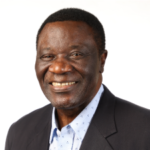 Jean Claude Mbanya is Professor of Medicine and Endocrinology at the Faculty of Medicine and Biomedical Sciences, Director of Biotechnology Centre and Postgraduate Dean Doctoral School of Life, Health and Environmental Sciences, University of Yaoundé 1, Yaoundé, Cameroon. He is Consultant Physician and Chief of Endocrinology and Metabolic Diseases Unit and Director of the National Obesity Centre at the Central Hospital in Yaoundé, Cameroon. He is also the current Dean of the College of Biological Sciences of the Cameroon Academy of Sciences.
Jean Claude Mbanya is Professor of Medicine and Endocrinology at the Faculty of Medicine and Biomedical Sciences, Director of Biotechnology Centre and Postgraduate Dean Doctoral School of Life, Health and Environmental Sciences, University of Yaoundé 1, Yaoundé, Cameroon. He is Consultant Physician and Chief of Endocrinology and Metabolic Diseases Unit and Director of the National Obesity Centre at the Central Hospital in Yaoundé, Cameroon. He is also the current Dean of the College of Biological Sciences of the Cameroon Academy of Sciences.
Professor Mbanya initially studied in Cameroon where he obtained his MD in 1979 before continuing his training at the University of Newcastle upon Tyne, England, where he obtained a PhD and eventually MRCP (UK). He is Fellow of the Royal College of Physicians, London, Fellow of the World Academy of Sciences, Trieste, Italy, and received a Doctor philosophiae honoris causa from the University of Oslo in 2011 for his outstanding international leadership in the field of diabetes. He is also the recipient of the American Diabetes Association 2004 Harold Rifkin award for Distinguished International Service in the Cause of Diabetes and the 2009 Philip Sherlock Award of the University Outreach Diabetes Group, Jamaica, for his outstanding international service in the field of diabetes.
Professor Mbanya is currently Honorary President of the International Diabetes Federation (IDF) after serving as President from 2009-2012. It was during his tenure as Chairman IDF Task Force on Insulin from 1997 – 2012 that there was adoption by pharma of the universal colour code for insulins and the U100 insulin syringes. Furthermore, during his chairmanship of HbA1c International Consensus Group there was Worldwide Standardization of the Haemoglobin A1C Measurement. As IDF President, he was instrumental in the international advocacy efforts for diabetes and non-communicable diseases (NCDs) at the United Nations, which led to the passage of the United Nations Resolution on Diabetes and the UN Political Declaration on NCDs in 2011. Professor Mbanya has authored several books and book chapters and has published over 240 papers in peer-reviewed journals. He has served as member of several Regional and global World Health Organization advisory and expert groups.
Rory McCrimmon, MBChB, MD
Recorded Presentation Title: Cellular Consequences of Hypoglycemia
Live Discussion: April 15, 1100-1140
 Rory McCrimmon trained at the University of Edinburgh and completed his clinical and speciality training in the South-East of Scotland before becoming an NHS Consultant Physician in Diabetes and Endocrinology at University Hospital Aintree, Liverpool, in 2000. In 2002, he joined the faculty at Yale University, Connecticut, to investigate why people with type 1 and 2 diabetes are very prone to developing low glucose (Hypoglycaemia). He returned to Scotland in 2009 to establish his laboratory at the University of Dundee, where he is currently Dean of Medicine, Professor of Experimental Diabetes and Metabolism and Honorary Consultant He was awarded the 2015 RD Lawrence Lecture by Diabetes UK for his research in Hypoglycaemia.
Rory McCrimmon trained at the University of Edinburgh and completed his clinical and speciality training in the South-East of Scotland before becoming an NHS Consultant Physician in Diabetes and Endocrinology at University Hospital Aintree, Liverpool, in 2000. In 2002, he joined the faculty at Yale University, Connecticut, to investigate why people with type 1 and 2 diabetes are very prone to developing low glucose (Hypoglycaemia). He returned to Scotland in 2009 to establish his laboratory at the University of Dundee, where he is currently Dean of Medicine, Professor of Experimental Diabetes and Metabolism and Honorary Consultant He was awarded the 2015 RD Lawrence Lecture by Diabetes UK for his research in Hypoglycaemia.
Prof McCrimmon is currently also Lead Clinician for the Scottish Diabetes Research Network (SDRN), which provides the necessary infrastructure to co-ordinate and enable academic and commercial research throughout Scotland. The SDRN hosts a National Research Register of over 11,000 subjects with diabetes pre-consented to be contacted about clinical trials. The register is directly linked to SCI-diabetes, which contains secure clinical and biochemical data on over 350,000 people with diabetes in Scotland.
Prof McCrimmon serves on Editorial Boards of Diabetologia and Diabetes. He is a panel member for: Medical Research Council Population and Systems Medicine Board, Diabetes UK, Clinical Studies Group Management Committee; Diabetes UK, Intermediate Clinical Fellowships Panel; Juvenile Diabetes Research Foundation PEAK Programme; Panel member, International Hypoglycaemia Study Group.
Douglas Melton, PhD
Recorded Presentation Title: Realizing the Promise of Stem Cell Therapy
Live Discussion: April 16, 0830-0910
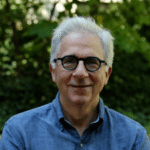 Douglas A. Melton, Ph.D., is the Xander University Professor at Harvard University and a Howard Hughes Medical Institute Investigator. With his wife, Gail, he serves as Co-Master of Eliot House at Harvard College. Dr. Melton is a member of the National Academy of Sciences and the Institute of Medicine. He has been awarded numerous scientific prizes and has twice been named to Time Magazine’s annual list of the world’s 100 most influential people. Dr. Melton earned a bachelor’s degree in biology from the University of Illinois and attended Cambridge University in England as a Marshall Scholar. He earned a B.A. in history and philosophy of science at Cambridge University and remained there to earn a Ph.D. in molecular biology at Trinity College and the MRC Laboratory of Molecular Biology.
Douglas A. Melton, Ph.D., is the Xander University Professor at Harvard University and a Howard Hughes Medical Institute Investigator. With his wife, Gail, he serves as Co-Master of Eliot House at Harvard College. Dr. Melton is a member of the National Academy of Sciences and the Institute of Medicine. He has been awarded numerous scientific prizes and has twice been named to Time Magazine’s annual list of the world’s 100 most influential people. Dr. Melton earned a bachelor’s degree in biology from the University of Illinois and attended Cambridge University in England as a Marshall Scholar. He earned a B.A. in history and philosophy of science at Cambridge University and remained there to earn a Ph.D. in molecular biology at Trinity College and the MRC Laboratory of Molecular Biology.
David M. Nathan, MD
Recorded Presentation Title: Therapy of Type 1 Diabetes: The DCCT-EDIC Trials
Live Discussion: April 16, 1030-1110 [EDT]
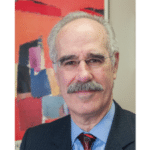 Dr. David M. Nathan is a Professor of Medicine at Harvard Medical School and is Director of the Diabetes Center and the Clinical Research Center at Massachusetts General Hospital. With more than 600 publications in the medical literature, Dr. Nathan is an internationally recognized expert on diabetes, its complications and the development of novel therapies. He was one of the architects of the Diabetes Control and Complications Trial and has chaired its follow-up since 1994. Dr. Nathan also chairs the NIH-sponsored Diabetes Prevention Program and the GRADE study. He was awarded the Outstanding Clinician Award in 2002 and the inaugural Outstanding Achievement in Clinical Diabetes Research Award in 2015, both by the American Diabetes Association, and the Distinguished Scientist Award from the National Institute of Diabetes Digestive and Kidney Disease, NIH in 2010.
Dr. David M. Nathan is a Professor of Medicine at Harvard Medical School and is Director of the Diabetes Center and the Clinical Research Center at Massachusetts General Hospital. With more than 600 publications in the medical literature, Dr. Nathan is an internationally recognized expert on diabetes, its complications and the development of novel therapies. He was one of the architects of the Diabetes Control and Complications Trial and has chaired its follow-up since 1994. Dr. Nathan also chairs the NIH-sponsored Diabetes Prevention Program and the GRADE study. He was awarded the Outstanding Clinician Award in 2002 and the inaugural Outstanding Achievement in Clinical Diabetes Research Award in 2015, both by the American Diabetes Association, and the Distinguished Scientist Award from the National Institute of Diabetes Digestive and Kidney Disease, NIH in 2010.
Bruce A. Perkins, MD, MPH
Recorded Presentation Title: Adjunctive Approaches to Insulin Therapy in Type 1 Diabetes
Live Discussion: April 16, 0950-1030
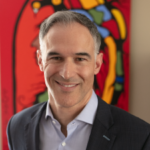 Bruce A Perkins, MD MPH is Professor, Endocrinologist and Diabetes Complications Clinician-Scientist at the University of Toronto appointed to the Faculty of Medicine and to the Institute of Health, Policy, Management and Evaluation. He holds the Sam and Judy Pencer Family Chair in Diabetes Clinical Research. He obtained his MD and Internal Medicine training at the University of Toronto, his endocrinology subspecialty training at Harvard University, his Masters of Public Health in Epidemiology at the Harvard School of Public Health, and a research fellowship in epidemiology at the Joslin Diabetes Center. Using longitudinal cohort methods as well as clinical trials, his research work has focused on 1) Early biomarkers of diabetes complications, and 2) Interventions for prevention of complications, including artificial pancreas technologies and disease-modifying adjunctive-to-insulin pharmacotherapies for type 1 diabetes. In 2015 he was awarded the Canadian Diabetes Association/CIHR Young Scientist Award. Among other projects funded by the NIH, JDRF, and Diabetes Canada, he co-leads an Innovations in type 1 Diabetes group within Diabetes Action Canada, a national patient-oriented research strategy.
Bruce A Perkins, MD MPH is Professor, Endocrinologist and Diabetes Complications Clinician-Scientist at the University of Toronto appointed to the Faculty of Medicine and to the Institute of Health, Policy, Management and Evaluation. He holds the Sam and Judy Pencer Family Chair in Diabetes Clinical Research. He obtained his MD and Internal Medicine training at the University of Toronto, his endocrinology subspecialty training at Harvard University, his Masters of Public Health in Epidemiology at the Harvard School of Public Health, and a research fellowship in epidemiology at the Joslin Diabetes Center. Using longitudinal cohort methods as well as clinical trials, his research work has focused on 1) Early biomarkers of diabetes complications, and 2) Interventions for prevention of complications, including artificial pancreas technologies and disease-modifying adjunctive-to-insulin pharmacotherapies for type 1 diabetes. In 2015 he was awarded the Canadian Diabetes Association/CIHR Young Scientist Award. Among other projects funded by the NIH, JDRF, and Diabetes Canada, he co-leads an Innovations in type 1 Diabetes group within Diabetes Action Canada, a national patient-oriented research strategy.
Steven J. Russell, MD, PhD
Recorded Presentation Title: Bihormonal Glucose Management Systems
Live Discussion: April 16, 0950-1030
 Dr. Russell is an Associate Professor of Medicine at Harvard Medical School and an Attending Physician at Massachusetts General Hospital Diabetes Research Center. He completed medical and doctoral (MD/PhD) training at University of Texas Southwestern Medical School and a residency in Internal Medicine and fellowship in Endocrinology at the Massachusetts General Hospital. He is board certified in Endocrinology, Diabetes & Metabolism.
Dr. Russell is an Associate Professor of Medicine at Harvard Medical School and an Attending Physician at Massachusetts General Hospital Diabetes Research Center. He completed medical and doctoral (MD/PhD) training at University of Texas Southwestern Medical School and a residency in Internal Medicine and fellowship in Endocrinology at the Massachusetts General Hospital. He is board certified in Endocrinology, Diabetes & Metabolism.
Dr. Russell has been the principal clinical investigator of a collaboration between Massachusetts General Hospital and Boston University to develop a wearable bionic pancreas system for automated glycemic management in people with diabetes mellitus. The technology has been licensed to Beta Bionics, a public benefit corporation, for further development and commercialization in the form of the iLet bionic pancreas. Dr. Russell is the Study Director for the iLet Pivotal Trials, which will begin in the first half of 2020. His other projects include evaluation of continuous glucose monitoring technology, methods for automated management of glucose in hospitalized patients, investigations of methods to improve insulin pharmacokinetics, investigations of stable formulations of glucagon, and development of a device for minimally invasive continuous insulin monitoring.
Dr. Russell’s research has been supported by the National Institutes of Health (NIH), The Leona M. and Harry B. Helmsley Charitable Trust, the Banting Foundation, the American Diabetes Association, and the Juvenile Diabetes Research Foundation.
Pere Santamaria
Recorded Presentation Title: Novel Strategies for Defeating Islet Autoimmunity
Live Discussion: April 15, 0900-0940
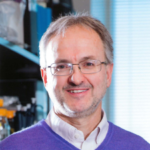 Pere Santamaria is Professor in the Department of Microbiology, Immunology and Infectious Diseases and Director of the Julia McFarlane Diabetes Research Centre at the Cumming School of Medicine at the University of Calgary. He has published over 170 articles and holds 92 patents and has given >250 lectures. He is Scientific Founder of Parvus Therapeutics Inc.
Pere Santamaria is Professor in the Department of Microbiology, Immunology and Infectious Diseases and Director of the Julia McFarlane Diabetes Research Centre at the Cumming School of Medicine at the University of Calgary. He has published over 170 articles and holds 92 patents and has given >250 lectures. He is Scientific Founder of Parvus Therapeutics Inc.
The focus of Santamaria’s scientific work has been to try to understand the immunogenetics and immunopathogenesis of autoimmune disorders, with a particular focus on type 1 diabetes, to try to find targets for therapeutic intervention. Early efforts focused on the relationship between genetic susceptibility and resistance to autoimmunity and T-cell tolerance. This work led to the discovery of a new therapeutic platform for the treatment of chronic inflammatory disorders based on nanomedicine. This therapeutic approach triggers the formation of extensive antigen- and disease-specific networks of regulatory T and B-cells that efficiently suppress the progression of several different autoimmune disorders without compromising normal immunity. Current efforts focus on dissecting the mechanisms that sustain and regulate these regulatory cellular networks, the developmental origin(s) of their cellular components and the molecules that control cell-to-cell communication within the networks. The ultimate goal is to bring this technology to the clinic.
James Shapiro
Recorded Presentation Title: The Present and Future of Pancreas and Islet Transplantation
Live Discussion: April 16, 1030-1110 [EDT]
 James was born in Leeds, England, the son of a family doctor. He developed a longstanding interest in islet cell transplantation as a medical student working with John Farndon and Tom Lennard. He is Professor of Surgery, Medicine and Surgical Oncology at the University of Alberta in Edmonton Canada where he also holds a prestigious Tier 1 Canada Research Chair in Transplantation Surgery and Regenerative Medicine. He was the lead investigator on the “Edmonton Protocol” cell transplant treatment for diabetes. He was the first in Canada to start clinical trials with human embryonic-derived insulin-producing stem cell transplants. His awards include a Hunterian Medal from the Royal College of Surgeons of England, and Gold Medals from the Governor General and from the Royal College of Physicians and Surgeons of Canada. He is a Fellow of the Royal Society of Canada, and a Fellow of the Canadian Academy of Health Sciences.
James was born in Leeds, England, the son of a family doctor. He developed a longstanding interest in islet cell transplantation as a medical student working with John Farndon and Tom Lennard. He is Professor of Surgery, Medicine and Surgical Oncology at the University of Alberta in Edmonton Canada where he also holds a prestigious Tier 1 Canada Research Chair in Transplantation Surgery and Regenerative Medicine. He was the lead investigator on the “Edmonton Protocol” cell transplant treatment for diabetes. He was the first in Canada to start clinical trials with human embryonic-derived insulin-producing stem cell transplants. His awards include a Hunterian Medal from the Royal College of Surgeons of England, and Gold Medals from the Governor General and from the Royal College of Physicians and Surgeons of Canada. He is a Fellow of the Royal Society of Canada, and a Fellow of the Canadian Academy of Health Sciences.
Sandra Silvestri
Recorded Presentation Title: Connaught laboratories and the Sanofi Insulin story
Live Discussion: April 15, 0800-0900
 Sandra is a medical doctor, who specialized in Endocrinology & Metabolic Diseases. She holds a PhD in Internal Medicine and Cardiovascular Disease and a Masters degree in Genetics, Rheumatology & Metabolic Bone disease. She began her career as a researcher in Endocrinology and Immunology in Florence and later in Denmark, and went on to work in a hospital as head of the Endocrine and Diabetes Unit. In 2005, she joined the pharmaceutical world in Italy as a Senior Clinical Research Physician for Internal Medicine and in 2012 she took an assignment in Indianapolis to work on a global project on R&D and Medical Affairs. After that she was appointed Eli Lilly’s Senior Medical Director for Italy and all South and Central European countries.
Sandra is a medical doctor, who specialized in Endocrinology & Metabolic Diseases. She holds a PhD in Internal Medicine and Cardiovascular Disease and a Masters degree in Genetics, Rheumatology & Metabolic Bone disease. She began her career as a researcher in Endocrinology and Immunology in Florence and later in Denmark, and went on to work in a hospital as head of the Endocrine and Diabetes Unit. In 2005, she joined the pharmaceutical world in Italy as a Senior Clinical Research Physician for Internal Medicine and in 2012 she took an assignment in Indianapolis to work on a global project on R&D and Medical Affairs. After that she was appointed Eli Lilly’s Senior Medical Director for Italy and all South and Central European countries.
Sandra joined Sanofi in 2015 as VP, Medical Head of Europe. In 2016 she was appointed SVP, Global Medical Head for General Medicine and Emerging Markets GBU, and in 2020 as SVP, Global Medical Head for General Medicine GBU.
She has maintained a clinical and academic role as professor at the Medical School, University of Florence, Italy and at the Descartes University, Paris, France.
Guillermo E. Umpierrez
Recorded Presentation Title: Insulin and Beyond in the Hospitalized Patient
Live Discussion: April 15, 1020-1100
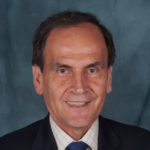 Dr. Umpierrez is professor of medicine and Director of clinical research of the Diabetes and Metabolism Center at Emory University; and Director of the diabetes and endocrinology section at Grady Memorial Hospital, Atlanta, Georgia.
Dr. Umpierrez is professor of medicine and Director of clinical research of the Diabetes and Metabolism Center at Emory University; and Director of the diabetes and endocrinology section at Grady Memorial Hospital, Atlanta, Georgia.
Dr. Umpierrez first joined the faculty at Emory University School of Medicine in 1992. He is the recipient of over 20 teaching awards for Best Clinical Teacher and Best Mentor at Emory University, as well as national awards from the American College of Physicians, American Association of Clinical Endocrinologists, and the American Diabetes Association. He is the Editor-in-Chief of the BMJ Open Diabetes Research & Care, and ADA ‘Therapy for Diabetes Mellitus and Related Disorders’. He has published more than 350 scientific manuscripts and book chapters. His research interests include mechanisms for beta-cell dysfunction in minority populations and the hospital management of diabetes and hyperglycemia. He heads the Emory Latino Diabetes Education Program, a nationally accredited Spanish Diabetes education program dedicated to providing diabetes education to Latinos.
Matthias von Herrath
Recorded Presentation Title: Immune-based Therapies for Type 1 Diabetes
Live Discussion: April 16, 1030-1110
 Dr. von Herrath serves as Director of the Center for Type 1 Diabetes Research in addition to being a full Professor in the La Jolla Institute for Immunology. Dr. von Herrath’s research focuses on strategies to prevent type 1 diabetes through the induction of regulatory T cells.
Dr. von Herrath serves as Director of the Center for Type 1 Diabetes Research in addition to being a full Professor in the La Jolla Institute for Immunology. Dr. von Herrath’s research focuses on strategies to prevent type 1 diabetes through the induction of regulatory T cells.
Dr. von Herrath wrote his thesis in the field of Biochemistry and then received his M.D. in Medicine from the Freiburg Medical School in Freiburg, Germany in 1988. He did his residency work at the Freiburg Medical Center in the Internal Medicine/Immunology department and at the Diakonic Hospital’s Intensive Care Unit in Freiburg. For his postdoctoral work, Dr. von Herrath went to The Scripps Research Institute and worked in its Neuropharmacology and Immunology departments.
Dr. von Herrath is an editor and reviewer for numerous publications as well as being a member of the American Society of Clinical Investigator and a Council Member for the International Diabetes Society. In addition, he is an Adjunct Professor of Medicine at the University of California, San Diego. He is the recipient of the 2008 American Diabetes Association-Lilly Outstanding Scientist Achievements Award, the 2006 Grotzky Award from the Juvenile Diabetes Foundation International, the 2007-2012 Scholar Award from the Juvenile Diabetes Foundation, awarded the 2014 Langerhans-Preis – German Diabetes Foundation, and was ranked in 2014 as the #1 Juvenile Diabetes Expert by “Expertscape.”
Michael A. Weiss
Recorded Presentation Title: The Future of Smart Insulin Delivery
Live Discussion: April 16, 0830-0910
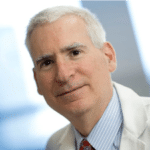 Dr. Michael A. Weiss is a Distinguished Professor at Indiana University and the Robert A. Harris Professor of Biochemistry & Molecular Biology and Department Chair. He is also an Adjunct Professor of Chemistry at IU-Bloomington and Professor of Biomedical Engineering at Purdue. Dr. Weiss’ research lies in molecular endocrinology, focusing on the folding and function of insulin with application to diabetes mellitus. Dr. Weiss is a graduate of Harvard College, the Harvard-MIT Program in Health Sciences & Technology (HST) and M.D.-Ph.D. Program at Harvard Medical School. With clinical training at the Brigham & Women’s Hospital, he is Board Certified in Internal Medicine. Holding >20 issued or pending patents in insulin technologies, Dr. Weiss is a founder and Chief Innovation Officer of Thermalin, Inc. Following Ph.D. research under Prof. Martin Karplus (Harvard Department of Chemistry & Chemical Biology) and clinical training, Dr. Weiss joined the Endocrine Unit at the Massachusetts General Hospital (1988-1994). He was a member of the junior faculty of the Department of Biological Chemistry & Molecular Pharmacology at Harvard Medical School (1988-1994), Professor at the University of Chicago in both the Divisions of Biological and Physical Sciences (1994-1999), and Cowan-Blum Professor of Biochemistry and Department Chair at the Case Western Reserve University School of Medicine (1999-2017). Dr. Weiss is a past chair of the NIDDK Board of Scientific Counselors at the National Institutes of Health.
Dr. Michael A. Weiss is a Distinguished Professor at Indiana University and the Robert A. Harris Professor of Biochemistry & Molecular Biology and Department Chair. He is also an Adjunct Professor of Chemistry at IU-Bloomington and Professor of Biomedical Engineering at Purdue. Dr. Weiss’ research lies in molecular endocrinology, focusing on the folding and function of insulin with application to diabetes mellitus. Dr. Weiss is a graduate of Harvard College, the Harvard-MIT Program in Health Sciences & Technology (HST) and M.D.-Ph.D. Program at Harvard Medical School. With clinical training at the Brigham & Women’s Hospital, he is Board Certified in Internal Medicine. Holding >20 issued or pending patents in insulin technologies, Dr. Weiss is a founder and Chief Innovation Officer of Thermalin, Inc. Following Ph.D. research under Prof. Martin Karplus (Harvard Department of Chemistry & Chemical Biology) and clinical training, Dr. Weiss joined the Endocrine Unit at the Massachusetts General Hospital (1988-1994). He was a member of the junior faculty of the Department of Biological Chemistry & Molecular Pharmacology at Harvard Medical School (1988-1994), Professor at the University of Chicago in both the Divisions of Biological and Physical Sciences (1994-1999), and Cowan-Blum Professor of Biochemistry and Department Chair at the Case Western Reserve University School of Medicine (1999-2017). Dr. Weiss is a past chair of the NIDDK Board of Scientific Counselors at the National Institutes of Health.
Hannele Yki-Järvinen
Recorded Presentation Title: A Primary Role for Insulin Therapy in Type 2 Diabetes
Live Discussion: April 15, 0940-1020
 Dr. Hannele Yki-Järvinen is Professor of Medicine at the Department of Medicine, University of Helsinki and Head of the Division of Diabetes at the Helsinki University Central Hospital, Helsinki, Finland. She is a specialist in internal medicine and endocrinology. Her main academic interests are causes and consequences of insulin resistance in vivo in humans, and application of knowledge based on pathophysiology to the treatment of type 2 diabetes. She has published over 200 original articles in English and over 50 reviews and book chapters. She has received several international awards including the G. B. Morgagni Young Investigator Award, Padova, Italy, the 28th Minkowski Award, European Association for the Study of Diabetes, Istanbul, Turkey, the Anders Jahre Pris, University of Oslo, Oslo, Norway and Novartis Award in Diabetes for excellence in patient-oriented research in San Diego, USA. 2008. She has given many award lectures such as the 16th Servier Lecture in Manila, Philippines, the first Dr. Augusto D. Litonjua Endowed Lectureship, Manila, Philippines. In 2011, she gave received the Harold Rifkin Visiting Professorship at Albert Einstein College of Medicine, New York, USA. She is currently funded by 2 grants from the European Union to investigate the diagnosis and pathogenesis of non-alcoholic fatty liver disease (NAFLD).
Dr. Hannele Yki-Järvinen is Professor of Medicine at the Department of Medicine, University of Helsinki and Head of the Division of Diabetes at the Helsinki University Central Hospital, Helsinki, Finland. She is a specialist in internal medicine and endocrinology. Her main academic interests are causes and consequences of insulin resistance in vivo in humans, and application of knowledge based on pathophysiology to the treatment of type 2 diabetes. She has published over 200 original articles in English and over 50 reviews and book chapters. She has received several international awards including the G. B. Morgagni Young Investigator Award, Padova, Italy, the 28th Minkowski Award, European Association for the Study of Diabetes, Istanbul, Turkey, the Anders Jahre Pris, University of Oslo, Oslo, Norway and Novartis Award in Diabetes for excellence in patient-oriented research in San Diego, USA. 2008. She has given many award lectures such as the 16th Servier Lecture in Manila, Philippines, the first Dr. Augusto D. Litonjua Endowed Lectureship, Manila, Philippines. In 2011, she gave received the Harold Rifkin Visiting Professorship at Albert Einstein College of Medicine, New York, USA. She is currently funded by 2 grants from the European Union to investigate the diagnosis and pathogenesis of non-alcoholic fatty liver disease (NAFLD).
Bernard Zinman
Recorded Presentation Title: Historical context at the University of Toronto
Live Discussion: April 15, 0800-0900
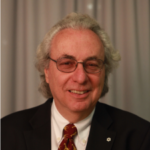 Dr. Bernard Zinman, a clinician-scientist at Mount Sinai, is a recognized leader in the field of diabetes. His research focuses on the prevention of the long-term complications of diabetes, new treatments for diabetes, and diabetes in high-risk populations. His research holds promise for increased understanding of how to deal with this growing, global epidemic.
Dr. Bernard Zinman, a clinician-scientist at Mount Sinai, is a recognized leader in the field of diabetes. His research focuses on the prevention of the long-term complications of diabetes, new treatments for diabetes, and diabetes in high-risk populations. His research holds promise for increased understanding of how to deal with this growing, global epidemic.
For more than 25 years, Dr. Zinman has played a key role in the Diabetes Control and Complications Trial, the largest and most comprehensive diabetes complications study ever conducted in Type 1 diabetes. This pivotal study demonstrated that keeping blood glucose levels as close to normal as possible slows the onset and progression of eye, kidney, and nerve complications caused by diabetes. One of the most cited diabetes study in the world, this study had a global impact on treatment of Type 1 diabetes patients and the occurrence of complications.
Dr. Zinman is Director of the Leadership Sinai Centre for Diabetes, a unique, multi-disciplinary outpatient unit that is one of the largest diabetes clinical research units in Ontario. Under his leadership, the Centre provides the highest quality care by integrating clinical practice, research and education for those with diabetes and their families.

